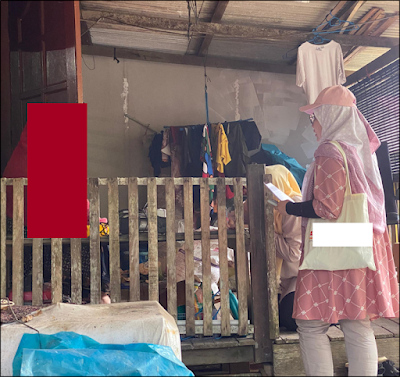Being Poor Is Expensive: Uncovering the Hidden Costs of Poverty
by HudaSani
In a world of growing economic disparity, the stark reality is that being poor is expensive. This paradoxical phenomenon may not be immediately apparent, but when we delve into the intricacies of poverty, we discover that the cost of living for the poor is significantly higher compared to their more affluent counterparts.
Have you ever think why being poor can be financially burdensome and the far-reaching implications it has on individuals and society as a whole.
1. Quantity Premiums: The Burden of Buying in Small Quantities
One of the foremost reasons why poverty is expensive is the challenge of buying in bulk. For individuals or families living paycheck to paycheck, purchasing goods in larger quantities to benefit from economies of scale is often a luxury they cannot afford. This results in what economists refer to as "quantity premiums." Poor households end up paying more per unit for essential items like food, toiletries, and household supplies, compared to those who can buy in larger quantities.
2. Location Matters: The High Cost of Living in Disadvantaged Areas
Many impoverished individuals find themselves residing in areas with higher transportation and infrastructure costs. These areas are often characterized by limited access to quality education, healthcare, and job opportunities. As a consequence, the prices of goods and services in these regions are inflated, further straining the financial resources of those already struggling to make ends meet. This disparity in living costs is a stark example of how poverty compounds itself.
Beyond the immediate financial strain, the higher cost of living associated with poverty exacerbates other development challenges, perpetuating the cycle of disadvantage.
1. Limited Investment in Education and Opportunities
The poor often find it challenging to invest in education or access opportunities that can lead to long-term benefits. The cycle of poverty restricts their ability to acquire the skills and knowledge necessary to escape its grasp. This not only hampers personal growth but also hinders economic development on a broader scale.
2. Environmental Consequences
Poverty-induced financial constraints may force individuals to opt for cheaper but more environmentally damaging solutions. For instance, using cheaper, less eco-friendly fuel sources becomes a necessity when the cost of cleaner alternatives is prohibitive. This can contribute to increased carbon emissions and environmental degradation, impacting us all.
Tackling the problem of poverty premiums and creating a fairer society requires a multifaceted approach. Here are some strategies to consider:
1. Strengthening Social Protection Systems by implementing robust social safety nets can provide a financial buffer for the poor, helping them avoid high-cost loans and making ends meet during difficult times.
2. Boosting Agricultural Development via investments in agriculture can empower rural communities and reduce their dependence on costly imported food items, thereby lowering overall living costs.
3. Investing in Financial Infrastructure by expanding access to affordable financial services, such as microloans and savings accounts, can help the poor manage their finances more efficiently and escape the poverty trap.
4. Leveraging Innovation by utilizing technological advancements can lead to cost-effective solutions, such as mobile banking and online marketplaces, which can benefit the poor by reducing transaction costs.
5. Efficient Supply Chains will helps streamlining supply chains and reducing intermediaries can lower the prices of essential goods, making them more affordable for everyone.
In conclusion, being poor is undeniably expensive, and this harsh reality perpetuates a cycle of disadvantage that affects individuals and society as a whole. The hidden costs of poverty, from quantity premiums to constrained opportunities and environmental consequences, demand our attention and concerted efforts to address them. By implementing strategies such as strengthening social protection systems, investing in agriculture, and leveraging innovation, we can move closer to a society where the burden of poverty is alleviated, and the cycle of disadvantage is broken, paving the way for a more equitable future.
